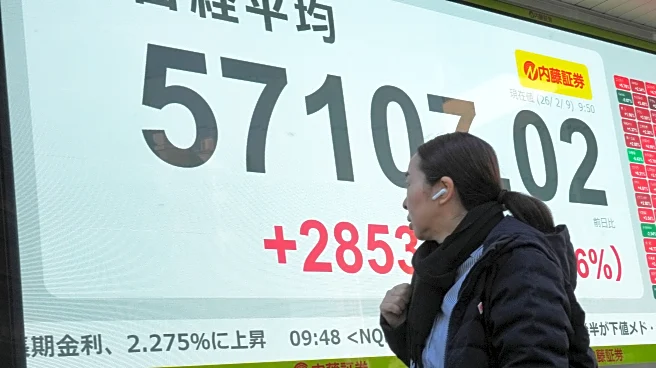What's Happening?
Starlink, a satellite internet provider, has been issuing numerous copyright infringement warnings to its users. This is largely due to the use of carrier-grade network address translation (CGNAT), which
assigns a single IP address to multiple homes. This practice can lead to users being wrongly accused of downloading copyrighted material, as they may be blamed for the actions of others sharing the same IP address. The issue traces back to the Copyright Alert System initiated in 2013 by Hollywood copyright holders and internet service providers to combat piracy. Although the system ended after four years, the framework for addressing copyright complaints persists, with ISPs taking these complaints seriously. Starlink users have reported receiving these notices even when they have not engaged in any illegal downloading.
Why It's Important?
The situation highlights significant challenges in the enforcement of copyright laws in the digital age, particularly for users of internet services like Starlink that employ CGNAT. This method of IP address allocation can lead to false accusations, affecting users' internet access and potentially leading to service disconnections. The broader implications include a need for ISPs to refine their methods of identifying actual infringers to avoid penalizing innocent users. This issue also underscores the importance of privacy tools like virtual private networks (VPNs), which can help users protect their online activities from being misattributed.
What's Next?
Users who receive copyright infringement notices from Starlink can appeal by submitting a ticket to the company. Starlink has shown a willingness to review these cases before taking any action. Additionally, users are encouraged to use VPNs to safeguard their internet activity. Starlink recommends specific VPN protocols that work well with its service, such as SSTP, OpenVPN, and WireGuard. The ongoing legal landscape, including a Supreme Court decision on a related case involving Cox Communications, may further influence how ISPs handle copyright infringement claims.
Beyond the Headlines
The reliance on CGNAT by smaller ISPs like Starlink raises questions about the adequacy of current IP address allocation practices. As internet usage continues to grow, the demand for unique IP addresses increases, potentially exacerbating issues of misattribution. This situation also reflects broader concerns about digital privacy and the balance between copyright enforcement and user rights. The development of more sophisticated technologies and policies may be necessary to address these challenges effectively.












